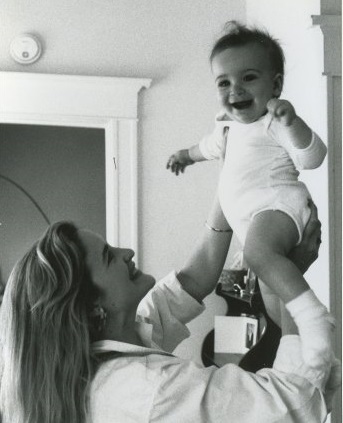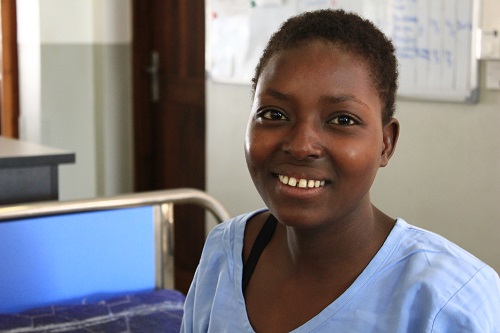Rolling the dice: Why should childbirth be a game of chance?
Changing the status quo for Tanzanian women
Two weeks ago, I made my first trip to Dar es Salaam, Tanzania with the Kupona team to witness the impact of our partner, CCBRT, first-hand. That’s how I found myself one afternoon seeking shade from the East African sun with a dozen ladies, ranging in age from 16 to 65. These women were at CCBRT recovering from surgery to repair obstetric fistula, a debilitating injury sustained during childbirth.
To some, she is considered fortunate
Malela, a 16-year-old girl with a shy smile, was the first recovering fistula patient I spoke with.
In the US, a girl her age would be thinking about friends, boys, passing her driver’s test and studying for SAT’s. Sitting together in Dar es Salaam, Malela told me about the day she lost her baby.
One of the 39,000 babies who die every year in Tanzania. In a voice barely louder than a whisper she told me that after two days of obstructed labor at a rural clinic near her home, she passed out from exhaustion. Her stillborn child was removed with forceps. The first thing she remembered when she woke was feeling her flat stomach, and asking, “Where is my baby?” Her mother told her the baby had died, and had been taken away. She never saw her child. To some, she is considered fortunate; ‘Fortunate’, simply because she survived. Every year in Tanzania, 8,000 women are not so fortunate.
Why is this about luck?
As we waited to meet with the next patient, I asked my interpreter if this woman had also lost her child. The interpreter shook her head.
“No, her baby survived. She is lucky.”
During my half-hour interview with 30-year-old Salma, I watched her 3-month-old baby girl rubbing her face against her mother’s shoulder and clutching Salma’s blue hospital gown in a tiny fist. I just kept thinking, why is this about luck?
Taking luck out of the equation
Before I went to Tanzania, I knew that 8,000 Tanzanian women die each year due to complications in pregnancy or childbirth. But I didn’t comprehend the full gravitas of that number until I sat side-by-side with two of the ‘lucky’ ones. The 16-year-old girl who didn’t die; the mother who didn’t lose her baby.

My beautiful mom, Tracy, delivered me in a safe, clean facility. Thousands of women in Tanzania are not so fortunate.
My mother had her first child when she was my age. Amidst the normal doubts and fears that come with pregnancy, she never wondered if she would have to share her hospital bed with five other women in labor. Giving birth on the floor of a packed, humid ward, or dying as a result of a hemorrhage at a clinic without blood supplies wasn’t a concern. She didn’t worry about generators failing, or medicine running out, or delivery rooms being short-staffed because it was the night shift.
I’m not a mother yet, but living in the US, I don’t worry about those things either. At Kupona Foundation, we believe that no woman ever should.
Every mother deserves the chance to greet her newborn child
I give to Kupona because I’ve met the women who, without this support, would be left with the gaping emotional and physical tears that obstetric fistula leaves in its wake. I give because this condition is so easily preventable. I’ve heard the stories of loss, listened as these women shared their hopes for the future, and I’ve been humbled by the overwhelming gratitude they expressed at simply being healed.
With the support of our donors, and the dedicated team at CCBRT, we are making quality, respectful, maternal healthcare accessible to the women of Tanzania. We are taking luck out of the equation. By decongesting overcrowded wards, training skilled healthcare workers, and building capacity throughout the Dar es Salaam region, we are giving mothers the opportunity to meet their newborn children, the opportunity to be healthy moms to healthy babies.
We say it so often at Kupona because we believe it: Every mother deserves the chance to greet her newborn child. This Mother’s Day, please take the opportunity to show your support. Honor the mothers in your life, and help us take luck out of the equation for thousands of women every year.
With gratitude,
Sami
Samantha Bossalini
Communications and Development Associate, Kupona Foundation
For every donation made in honor of a mother, her name will be entered into our prize drawing. The winner will receive a gift from the Mabinti Center, winner of Accessories Designer of the Year at Swahili Fashion Week 2014. Just type ‘In honor of {insert Mum’s name here}’ in your donation description for her chance to win!



